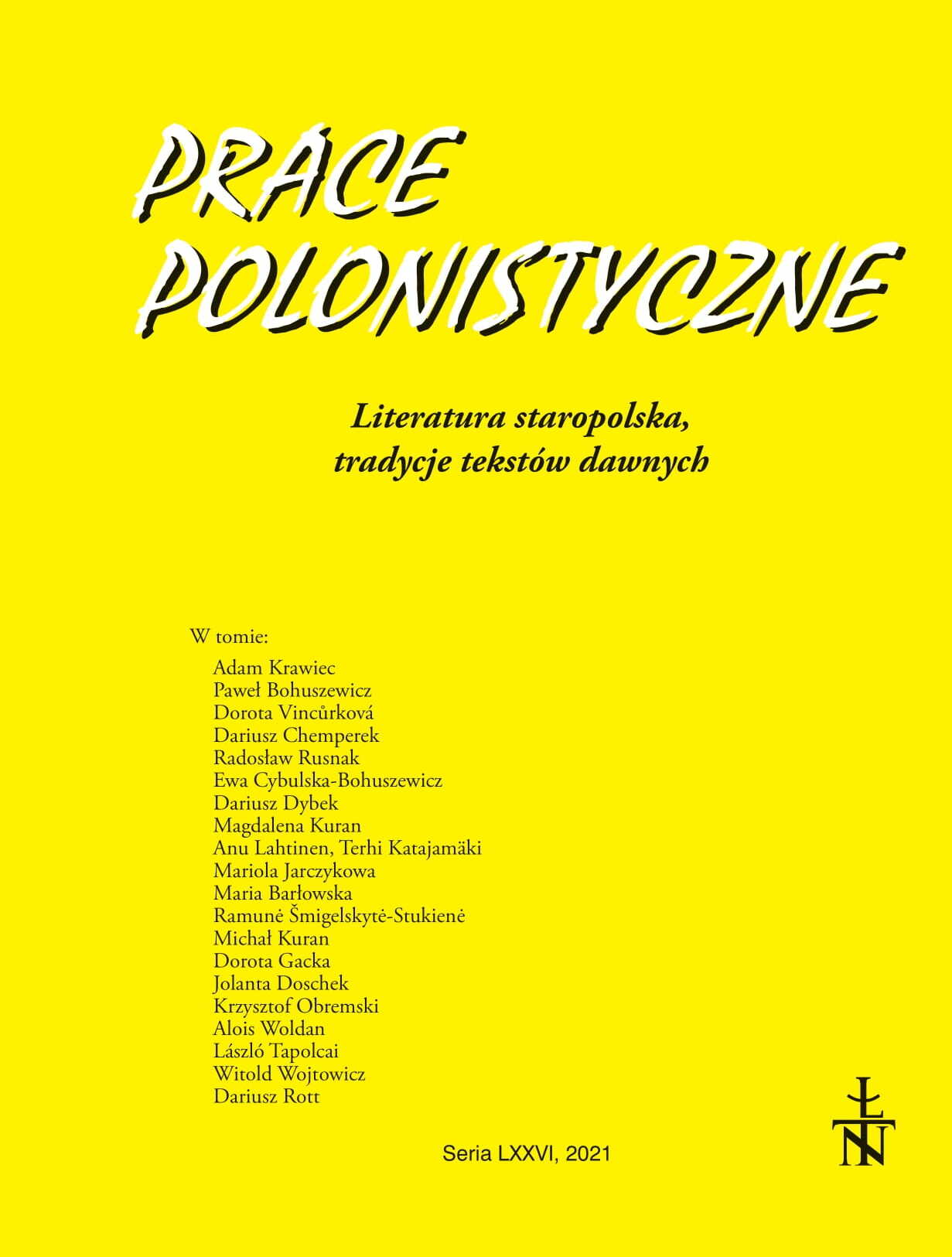CIVIC AND CULTURAL IDENTITIES AND THE ENLIGHTENED LITHUANIAN NOBILITY (BASED ON THE EGO-DOCUMENTS OF THE OGIŃSKI AND PLATER FAMILIES)
DOI:
https://doi.org/10.26485/PP/2021/76/12Keywords:
civic identity; cultural identity; the Enlightenment; the Plater family; the Ogiński family; ego-documents; correspondence collectionsAbstract
The aim of this article is to examine the civic and cultural identities of two aristocrats who held important offices and belonged to the ruling elite of the Grand Duchy of Lithuania in the late eighteenth century: the last Vice-Chancellor of Lithuania, writer, and economist, Kazimierz Konstanty Plater (1749–1807), and the last Grand Treasurer of Lithuania, diplomat, and composer, Michal Kleofas Ogiński (1765–1833). The analysis of the ego-documents of the Ogiński and Plater families helps answer the question why these two aristocrats, promoting the ideas of the Enlightenment, in 1795 chose different paths: Ogiński emigrated to Italy where he developed close ties with the cultural elite of Florence but never abandoned the idea of active struggle, whereas Plater stayed in Lithuania. Plater made compromises with the invaders. He sought to figure out the governing mechanism of the Russian Empire and to secure protection and support from the new government.



